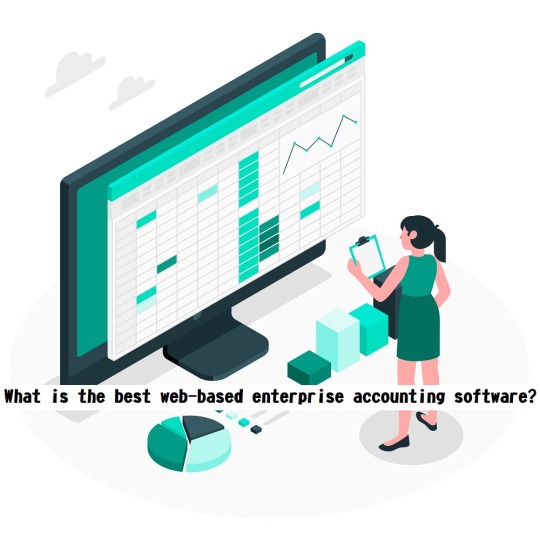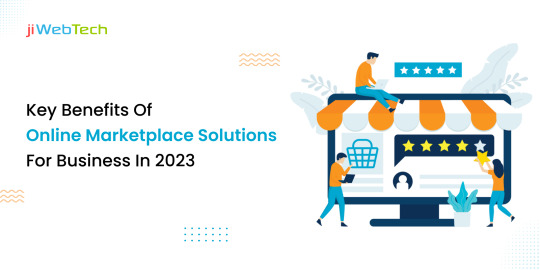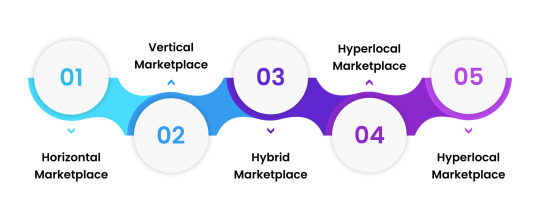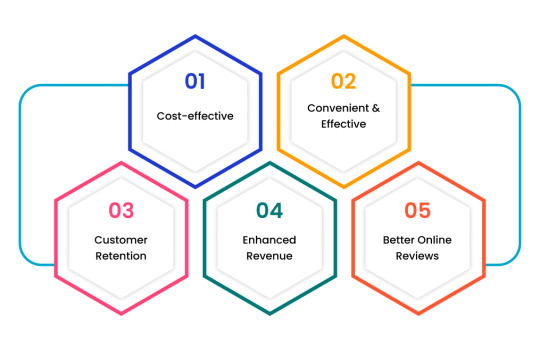#cloud management solution
Text
Business Intelligence Solutions: Unleashing the Power of Managed Analytics

In today's dynamic business landscape, the effective utilization of data is pivotal for informed decision-making and sustained growth. Business Intelligence (BI) solutions have emerged as a cornerstone, offering organizations the ability to glean actionable insights from their data. This article explores the transformative impact of BI solutions and how managed analytics, coupled with outsourced IT management, is reshaping the way businesses harness the power of data.
1. Proactive IT Support and Managed IT Services:
BI solutions thrive in an environment supported by proactive IT services. Managed IT services, which include proactive support and maintenance, ensure the seamless operation of BI tools. This proactive approach not only enhances the reliability of analytics but also minimizes downtime, allowing businesses to make real-time decisions.
2. Advanced Analytics and Data Visualization Services:
Managed analytics encompass advanced analytics services that go beyond basic reporting. Data visualization services play a crucial role, translating complex data sets into visually appealing and understandable insights. This facilitates better communication and comprehension of data-driven findings across all levels of an organization.
3. Cloud Management Solutions and Migration Strategies:
The integration of cloud management solutions is a game-changer for BI. Cloud migration solutions offer scalability, flexibility, and cost-efficiency. Managed BI services leverage cloud optimization solutions, ensuring that businesses make the most of cloud resources while maintaining peak performance.
4. Data Science Solutions and Hybrid Cloud Integration:
BI solutions often involve intricate data science methodologies. Managed analytics extend to data science solutions, enabling organizations to employ predictive analytics and machine learning for more accurate forecasting. Hybrid cloud solutions provide the necessary infrastructure for hosting and processing data across different environments securely.
5. IT Consultation Services and Strategic Managed Services:
Strategic IT consultation services are instrumental in aligning BI strategies with overall business objectives. Managed services, including serverless computing and big data consulting, are designed to optimize the performance of BI tools, ensuring they adapt to evolving business requirements.
6. Cloud Consulting Services and Holistic Cloud Management:
BI solutions benefit from specialized cloud consulting services. These services guide organizations in selecting the most suitable cloud platforms and architectures for their BI needs. Holistic cloud management services oversee the entire cloud ecosystem, ensuring optimal performance and security.
In conclusion, the convergence of BI solutions and managed analytics is reshaping the way businesses interpret and leverage their data. With the right blend of outsourced IT management, advanced analytics, and cloud solutions, organizations can unlock the full potential of their data, gaining a competitive edge in today's data-driven era.
#it consultation services#managed service#serverless computing#big data consulting#business intelligence solutions#Scholarnest#Scholarnest Technologies#cloud consulting services#cloud management#cloud management services#data visualization services#managed it services#advanced analytics services#cloud management solution#cloud migration solutions#cloud optimization solutions#data science solutions#hybrid cloud solutions#outsourced it management#proactive it support
0 notes
Text
Elevate Efficiency with Top-tier ERP Software for Engineering Companies in Mumbai, India
Unlock unparalleled efficiency for your engineering company with ShantiTechnology's (STERP) advanced ERP software solutions. Tailored specifically for engineering companies in Mumbai, India, our ERP solutions redefine operational excellence. As one of the leading ERP solution providers in India, we bring you state-of-the-art technology to streamline processes, enhance collaboration, and boost productivity.
Experience the next level of business management with ShantiTechnology (STERP) – your trusted partner for cutting-edge ERP software tailored for engineering companies in India and specifically optimized for those in Mumbai.
#ERP software for engineering company#ERP software for engineering companies in India#ERP software for engineering companies in Mumbai#ERP solution providers in India#ERP software#ERP system#cloud ERP#ERP solutions#ERP India#Business Solutions#SAP Business One#Supply Chain Management
7 notes
·
View notes
Text
ERP Trends 2024: What Engineering and Manufacturing Industries Need to Know
As we navigate through 2024, the landscape of Enterprise Resource Planning (ERP) systems continues to evolve, presenting both opportunities and challenges for engineering and manufacturing industries. Companies in this sector, especially those in key industrial regions like Maharashtra, Mumbai, Pune, and Gujarat, must stay abreast of the latest ERP trends to maintain competitive advantage and operational efficiency. In this blog, we’ll delve into the significant ERP trends of 2024 and their implications for the engineering and manufacturing sectors.

1. Increased Adoption of Cloud-Based ERP Solutions
One of the most significant trends in ERP software for engineering companies in Maharashtra and across India is the shift towards cloud-based solutions. Cloud ERP offers several advantages over traditional on-premise systems, including lower upfront costs, greater scalability, and enhanced accessibility.
Benefits of Cloud-Based ERP:
Cost Efficiency: Eliminates the need for expensive hardware and reduces IT maintenance costs.
Scalability: Easily adjusts to the growing needs of a manufacturing company in Gujarat or an engineering firm in Mumbai.
Accessibility: Provides access to real-time data from anywhere, facilitating better decision-making.
Leading ERP software companies in Pune are increasingly offering cloud-based solutions tailored to the needs of local engineering and manufacturing businesses. These solutions support remote work and ensure business continuity in an increasingly digital world.
2. Integration of AI and Machine Learning
Artificial Intelligence (AI) and Machine Learning (ML) are revolutionizing ERP systems by providing intelligent insights and automating routine tasks. For ERP software for engineering companies in Mumbai, integrating AI can enhance predictive maintenance, optimize supply chain management, and improve production planning.
AI and ML Applications in ERP:
Predictive Analytics: Helps foresee equipment failures and reduce downtime.
Supply Chain Optimization: Enhances demand forecasting and inventory management.
Process Automation: Automates repetitive tasks, freeing up human resources for more strategic roles.
ERP solution providers in Pune are at the forefront of integrating AI and ML into their systems, enabling companies to leverage advanced analytics and improve overall operational efficiency.
3. Emphasis on Cybersecurity
With the increasing digitization of manufacturing processes, cybersecurity has become a critical concern. ERP systems, being the backbone of business operations, are prime targets for cyber-attacks. Engineering and manufacturing companies in regions like Gujarat and Maharashtra need robust cybersecurity measures to protect their sensitive data.
Key Cybersecurity Features:
Data Encryption: Protects data during transmission and storage.
Multi-Factor Authentication: Enhances user authentication processes.
Regular Security Audits: Ensures continuous monitoring and improvement of security protocols.
ERP software for engineering companies in Maharashtra must incorporate these advanced security features to safeguard against data breaches and cyber threats.
4. Enhanced User Experience (UX)
User experience has become a critical factor in ERP adoption and utilization. Modern ERP systems are focusing on intuitive interfaces and user-friendly designs to ensure that all employees, regardless of their technical expertise, can effectively use the system.
UX Improvements:
Intuitive Dashboards: Provide real-time insights and easy navigation.
Mobile Accessibility: Ensures that users can access ERP data on-the-go.
Customization Options: Allow users to tailor the system to their specific needs.
ERP software companies in Pune are prioritizing user experience in their solutions, making it easier for engineering and manufacturing firms to train their staff and increase productivity.
5. Internet of Things (IoT) Integration
The integration of IoT with ERP systems is another trend transforming the manufacturing industry. IoT devices collect vast amounts of data from production lines, equipment, and other operational areas, which can be analyzed by the ERP system to optimize performance.
IoT Benefits in ERP:
Real-Time Monitoring: Provides immediate insights into production processes.
Predictive Maintenance: Schedules maintenance activities based on equipment condition rather than time intervals.
Enhanced Quality Control: Monitors product quality throughout the manufacturing process.
For ERP for manufacturing companies in Gujarat, IoT integration offers a significant advantage by improving efficiency and reducing operational costs.
6. Sustainability and Green Manufacturing
Sustainability is becoming a critical focus for manufacturing companies worldwide. ERP systems are evolving to support green manufacturing practices by tracking and optimizing resource usage, reducing waste, and ensuring compliance with environmental regulations.
Sustainable ERP Features:
Resource Management: Tracks energy and material usage to minimize waste.
Regulatory Compliance: Ensures adherence to environmental laws and standards.
Sustainability Reporting: Provides detailed reports on sustainability metrics.
Engineering and manufacturing companies in regions like Mumbai and Maharashtra can benefit from ERP solutions that incorporate sustainability features, helping them achieve their environmental goals and enhance their corporate reputation.
7. Modular and Flexible ERP Solutions
In response to the diverse needs of engineering and manufacturing firms, ERP solution providers in Pune are developing more modular and flexible ERP systems. These systems allow companies to select and implement only the modules they need, which can be easily scaled and customized as their business grows.
Advantages of Modular ERP:
Cost-Effective: Pay only for the features you need.
Scalability: Easily add new modules as your business requirements evolve.
Customization: Tailor the system to fit specific operational needs.
This trend is particularly beneficial for small to medium-sized enterprises (SMEs) in the engineering and manufacturing sectors, enabling them to adopt ERP systems without the burden of high costs or complexity.
8. Focus on Customer-Centric Manufacturing
ERP systems are increasingly supporting customer-centric manufacturing practices, where production processes are aligned with customer needs and preferences. This approach enhances customer satisfaction and drives business growth.
Customer-Centric ERP Features:
Custom Order Management: Handles unique customer requirements and specifications.
Enhanced CRM Integration: Integrates with customer relationship management (CRM) systems for a holistic view of customer interactions.
Real-Time Order Tracking: Provides customers with real-time updates on their orders.
Manufacturing companies in Gujarat and engineering firms in Maharashtra are leveraging these customer-centric ERP features to improve their service levels and build stronger customer relationships.
9. Advanced Analytics and Business Intelligence (BI)
Advanced analytics and BI are becoming integral components of modern ERP systems. These tools provide deep insights into business operations, helping companies make data-driven decisions and improve performance.
Key BI Features:
Data Visualization: Converts complex data into easy-to-understand charts and graphs.
Dashboards: Offer a real-time overview of key performance indicators (KPIs).
Predictive Analytics: Forecasts future trends based on historical data.
ERP software companies in Pune are incorporating advanced analytics and BI capabilities into their systems, empowering engineering and manufacturing firms to gain a competitive edge through better insights and informed decision-making.
10. Globalization and Localization Support
As engineering and manufacturing companies expand their operations globally, ERP systems must support multiple languages, currencies, and regulatory requirements. Globalization and localization features are essential for companies operating in diverse markets.
Globalization Features:
Multi-Language Support: Accommodates users from different regions.
Multi-Currency Handling: Manages transactions in various currencies.
Compliance with Local Regulations: Ensures adherence to regional laws and standards.
ERP solution providers in Pune and other industrial hubs are enhancing their systems to support global operations, enabling companies to seamlessly manage their international business processes.
Conclusion
The ERP landscape for engineering and manufacturing industries is rapidly evolving, driven by advancements in technology and changing business needs. Companies in Maharashtra, Mumbai, Pune, and Gujarat must stay informed about these trends to leverage the full potential of ERP systems. By adopting cloud-based solutions, integrating AI and IoT, prioritizing cybersecurity, and focusing on sustainability, businesses can achieve greater efficiency, competitiveness, and growth in 2024 and beyond.
For engineering and manufacturing firms looking for the best ERP software for engineering companies in Maharashtra or ERP for manufacturing companies in Gujarat, it is crucial to partner with leading ERP solution providers in Pune who understand the unique challenges and opportunities in this sector. Embracing these trends will not only enhance operational efficiency but also drive innovation and sustainability in the engineering and manufacturing industries.
By staying ahead of these ERP trends, companies can position themselves for success in an increasingly digital and interconnected world. Whether you are an engineering firm in Mumbai or a manufacturing company in Gujarat, the right ERP system can transform your operations and pave the way for a prosperous future.
#ERP software in Vadodara#Manufacturing ERP software in Gujarat#ERP software companies in Vadodara#ERP software providers in Vadodara#ERP for manufacturing company in Gujarat#ERP software#ERP system#cloud ERP#ERP solutions#software development#engineering ERP#management software#engineering services#engineering industry
4 notes
·
View notes
Text
GREAT OPPORTUNITY! This is the link to the American Dream Academy! It's an official partnership between the Milken Center and Coursera to provide learners FREE access to Coursera courses from top companies like IBM, Meta, Google, Amazon, Intuit, and Salesforce focused on in-demand skills like data analysis, IT support, cybersecurity, project management, UX Design, front-end and back-end development, sales operations and development, cloud solutions architecture, bookkeeping, and digital marketing.
They also provide FREE courses that will help you build soft skills such as communications, critical thinking, leadership, financial literacy, human skills and growth mindset.
I'm personally taking a bunch of courses myself and I can fully say that this is legit! I'm taking Frontend Development and Backend Development from Meta and the UX Design Course from Google. It's great because usually these courses cost a lot of money but I'm doing it all and getting certified for FREE! I already have a few certificates under my belt that I can use on my resume! 😎
Unfortunately, the American Dream Academy program will be ending in 2024 and the last day to sign up for this is NOVEMBER 1st! (They extended the deadline) Make sure you sign up by this date so you don't miss out! 💞
#coding#codeblr#web development#programming#ux desgin#digital marketing#data analysis#project management#cybersecurity#cloud solutions#courses#free courses#resources
10 notes
·
View notes
Text
#salesforce development solutions#salesforce marketing cloud developer#salesforce integration services#salesforce managed services#salesforce development services
2 notes
·
View notes
Text
What is the best web-based enterprise accounting software?

In the fast-paced and ever-evolving landscape of business, staying on top of your finances is crucial. As enterprises expand their operations, managing accounts efficiently becomes a daunting task. Thankfully, with the advent of technology, businesses now have access to a plethora of web-based enterprise accounting software options to streamline their financial processes. In this comprehensive guide, we will explore the ins and outs of web-based enterprise accounting software, helping you make an informed decision on the best solution for your business needs.
Understanding Web-Based Enterprise Accounting Software
Web-based enterprise accounting software, often referred to as cloud accounting software, is a digital solution that allows businesses to manage their financial activities online. Unlike traditional accounting systems that rely on on-premise software, web-based accounting tools operate in the cloud, offering users the flexibility to access their financial data from anywhere with an internet connection.
Advantages of Web-Based Enterprise Accounting Software
1. Accessibility
One of the primary advantages of web-based accounting software is accessibility. With data stored securely in the cloud, users can access their financial information anytime, anywhere. This proves especially beneficial for enterprises with multiple locations or remote teams, fostering collaboration and efficiency.
2. Cost Efficiency
Web-based accounting solutions often follow a subscription-based model, eliminating the need for costly upfront investments in software and hardware. This cost-effective approach makes it easier for businesses to scale their accounting infrastructure according to their needs without breaking the bank.
3. Real-Time Updates
In the dynamic world of business, real-time data is invaluable. Web-based accounting software provides instant updates, ensuring that users have access to the most recent financial information. This feature is crucial for making informed decisions and adapting to market changes promptly.
4. Automatic Updates and Maintenance
Gone are the days of manual software updates and maintenance. With web-based accounting solutions, updates are automatic, and maintenance is handled by the service provider. This frees up valuable time for businesses to focus on core operations rather than managing software updates.
Features to Look for in Web-Based Enterprise Accounting Software
1. User-Friendly Interface
A user-friendly interface is essential for ensuring that your team can navigate the software seamlessly. Look for solutions with intuitive dashboards and easy-to-understand features to minimize the learning curve for your staff.
2. Scalability
As your enterprise grows, so do your accounting needs. Choose a web-based accounting solution that can scale with your business, accommodating increased transaction volumes and additional users without compromising performance.
3. Integration Capabilities
Efficient accounting doesn't happen in isolation. Ensure that the web-based accounting software you choose integrates seamlessly with other essential business tools, such as CRM systems, project management software, and e-commerce platforms.
4. Security
The security of your financial data should be a top priority. Opt for web-based accounting software that employs robust encryption protocols and follows industry best practices for data protection. Additionally, check for features such as multi-factor authentication to add an extra layer of security.
Top Contenders in the Web-Based Enterprise Accounting Software Market
1. MargBooks
MargBooks Online is a India's popular online accounting solution known for its user-friendly interface and robust features. It offers a range of plans to suit businesses of all sizes and provides tools for invoicing, expense tracking, and financial reporting.
2. Xero
Xero is another cloud accounting software that caters to small and medium-sized enterprises. With features like bank reconciliation, inventory management, and payroll integration, Xero is a comprehensive solution for businesses looking to streamline their financial processes.
3. NetSuite
NetSuite, owned by Oracle, is a cloud-based ERP (Enterprise Resource Planning) solution that includes robust accounting functionalities. It is suitable for larger enterprises with complex financial needs and offers features such as financial planning, revenue recognition, and multi-currency support.
4. Zoho Books
Zoho Books is part of the Zoho suite of business applications and is designed for small and medium-sized enterprises. It provides features such as automated workflows, project billing, and collaborative client portals, making it a versatile choice for businesses with diverse needs.
Making the Right Choice for Your Business
Choosing the best web-based enterprise accounting software for your business requires careful consideration of your specific needs and objectives. Here are some steps to guide you through the decision-making process:
1. Assess Your Business Requirements
Start by identifying your business's specific accounting requirements. Consider factors such as the number of users, the complexity of your financial transactions, and the need for integration with other business applications.
2. Set a Budget
Determine a realistic budget for your accounting software. While web-based solutions often offer cost savings compared to traditional software, it's essential to choose a solution that aligns with your financial resources.
3. Explore Free Trials
Many web-based accounting software providers offer free trials of their platforms. Take advantage of these trials to explore the features and functionalities of different solutions before making a commitment.
4. Seek Recommendations and Reviews
Consult with other businesses in your industry or network to gather recommendations and insights. Additionally, read reviews from reputable sources to gain a better understanding of the user experiences with different accounting software options.
The Evolution of Web-Based Enterprise Accounting Software
As technology continues to advance, so does the landscape of web-based enterprise accounting software. The evolution of these platforms is driven by the ever-changing needs of businesses and the ongoing developments in cloud technology. Let's delve deeper into the evolving trends shaping the future of web-based accounting solutions.
1. Artificial Intelligence (AI) and Automation
The integration of artificial intelligence and automation is revolutionizing how businesses handle their financial processes. Modern web-based accounting software is incorporating AI algorithms to automate repetitive tasks, such as data entry and invoice categorization. This not only increases efficiency but also minimizes the risk of human error.
2. Enhanced Data Analytics
In the age of big data, the ability to derive meaningful insights from financial data is paramount. Advanced web-based accounting solutions are now equipped with powerful data analytics tools. These tools help businesses analyze trends, forecast future financial scenarios, and make data-driven decisions.
3. Mobile Accessibility
The shift towards mobile accessibility is a notable trend in web-based enterprise accounting software. Businesses are increasingly relying on mobile devices for day-to-day operations, and accounting software providers are responding by offering mobile-friendly applications. This allows users to manage their finances on the go, providing unparalleled flexibility.
4. Integration with E-Commerce Platforms
As e-commerce continues to thrive, businesses are looking for accounting solutions that seamlessly integrate with their online sales platforms. Modern web-based accounting software often includes features tailored for e-commerce, such as automated transaction reconciliation with online sales channels and inventory management.
5. Blockchain Technology
Blockchain technology is making waves in various industries, and accounting is no exception. Some web-based accounting solutions are exploring the integration of blockchain for enhanced security and transparency in financial transactions. This could revolutionize how businesses handle aspects like auditing and transaction verification.
Common Challenges and How to Overcome Them
While web-based enterprise accounting software offers numerous benefits, it's important to be aware of potential challenges and how to overcome them. Here are some common issues businesses may face:
1. Security Concerns
The sensitive nature of financial data raises concerns about security in the cloud. To address this, choose a web-based accounting solution that employs robust encryption protocols and complies with industry security standards. Additionally, educate your team about best practices for secure online behavior.
2. Connectivity Issues
Reliable internet connectivity is crucial for accessing web-based accounting software. In regions with unstable internet connections, businesses may face challenges in real-time collaboration and data accessibility. Consider implementing backup solutions for offline access or explore accounting software with offline capabilities.
3. Customization Needs
Every business has unique accounting requirements. Some businesses may find that certain web-based accounting solutions lack the level of customization they need. In such cases, explore platforms that offer extensive customization options or consider integrating additional specialized accounting tools.
4. Data Ownership and Control
Understanding the terms of service and data ownership is essential when using web-based accounting software. Ensure that the chosen platform allows you to retain control over your financial data and provides mechanisms for data export in case of migration to a different system.
Conclusion: Making the Right Choice for Long-Term Success
In the fast-paced world of business, the right web-based enterprise accounting software can be a game-changer. Whether you're a small startup or a large enterprise, the key is to stay informed about the latest advancements in accounting technology and align your choice with the long-term goals of your business.
As you navigate the vast landscape of web-based accounting solutions, remember that the best choice is the one that seamlessly integrates with your business processes, enhances efficiency, and adapts to the evolving needs of your enterprise. If you have any specific questions or need further guidance on a particular aspect of web-based accounting software, feel free to ask for more information!
Also read- Online billing and accounting software to manage your business
#Web-based accounting#Cloud software#Financial management#Enterprise solutions#accounting#software#billing#online billing software#technology#programming#erp#tech#drawings#illlustration#artwork#art style#sketchy#art#aspec#aromantic asexual#arospec#acespec#aroace#aro#bg3#astarion#shadowheart#gale dekarios#gale of waterdeep#karlach
2 notes
·
View notes
Text

In this blog post, we will discuss the future of property management and what hoteliers(PMS) can expect in hotel businesses' 2023 automation. Read More....
#phonesuite direct#phonesuite pbx#phonesuite dealers#PBX System#VoIP Phone#VoIP Advantages#Hotel Phone System#IP telephony#Ip Pbx System#Cloud Pbx System#Managed Voice#Pbx System in Texas#VoIP Phone System#VoIP technology#Telephony solutions#PBX Communications#hotel phone system#Voice call#Modern Telephone#VoIP Telephone#hotel hospitality#phone pbx system#Business Phones#hospitality industry#communication solutions#hospitality communication#Voiceware PBX#SIP phones#PBX platforms#Communications solutions
10 notes
·
View notes
Text

When it comes to owning and managing a hotel, the importance of having a mobile and native cloud-based Property Management System (PMS). Read More...
#Native Cloud PMS#Mobile & Native Cloud PMS#Best Choice for Hotel Owners#hotel phone system#Unified Communications#managing a hotel#voip means#mobilevoip#digital phone vs analog#Voiceware Platform#PBX Solution#pbx communications#hotel hospitality#hotel pbx#Cloud PBX#Cloud Technology#VoIP Solutions#cloud based system#Business Telephone System#SIP Trunkin#Technology#VoIP Phone#phonesuite#voip phone system#PBX Communications#SIP Trunking#SIP Trunks#Voice calls#Busines Phonenumber#telephony solutions
9 notes
·
View notes
Text
What are Cloud Solutions Management and its benefits?

Cloud Solutions Management refers to the process of overseeing and optimizing cloud-based services and resources to meet an organization's specific requirements. It involves the strategic planning, deployment, monitoring, and maintenance of cloud solutions to ensure optimal performance, security, scalability, and cost-efficiency. Cloud Solutions Management has gained significant importance in recent years as businesses increasingly leverage cloud technologies to enhance their operations and gain a competitive edge. This article explores the concept of Cloud Solutions Management and highlights its key benefits.
One of the primary benefits of Cloud Solutions Management is improved flexibility and scalability. Cloud services offer businesses the ability to scale their resources up or down based on demand, allowing them to quickly respond to changing business needs. With effective management practices in place, organizations can efficiently provision and deprovision cloud resources, ensuring that they align with current requirements. This flexibility eliminates the need for upfront investments in hardware or infrastructure and enables businesses to adapt their IT infrastructure rapidly.
Another advantage of Cloud Solutions Management is enhanced accessibility and collaboration. Cloud solutions provide a centralized platform where employees can access files, applications, and data from anywhere, at any time, using various devices. This accessibility fosters collaboration and allows teams to work seamlessly across geographies and time zones. By managing cloud solutions effectively, organizations can ensure that employees have the necessary access permissions and security measures in place to collaborate securely and boost productivity.
Cost optimization is a significant benefit of Cloud Solutions Management. By leveraging cloud-based resources, businesses can reduce their capital expenditure on hardware, software licenses, and maintenance. Instead, they can adopt a pay-as-you-go model, where they only pay for the resources they use. Effective management practices help monitor resource utilization, identify idle or underutilized resources, and optimize costs by rightsizing instances or implementing auto-scaling policies. Moreover, cloud solutions provide economies of scale, allowing organizations to benefit from the cloud provider's infrastructure and reduce operational costs.
Cloud Solutions Management also offers improved reliability and disaster recovery capabilities. Cloud service providers typically have robust data centers with redundant systems, ensuring high availability and minimizing the risk of downtime. By managing cloud solutions effectively, organizations can leverage features such as automatic backups, geo-replication, and disaster recovery plans. These features help protect critical data and applications, ensuring business continuity in the event of a failure or disaster. Regular monitoring, proactive maintenance, and system updates further contribute to the reliability of cloud solutions.
Security is a crucial aspect of Cloud Solutions Management. Cloud providers invest heavily in securing their infrastructure and implementing industry-standard security controls. However, organizations are responsible for managing access controls, data encryption, and maintaining compliance with regulatory requirements. Effective management practices involve implementing robust security measures, conducting regular security assessments, and monitoring for potential threats or vulnerabilities. With proper management, businesses can leverage the security capabilities of cloud solutions while ensuring their specific security and compliance needs are met.
Cloud Solutions Management also enables organizations to focus on their core competencies. By offloading the management and maintenance of IT infrastructure to cloud service providers, businesses can allocate their resources and expertise to areas that directly impact their growth and innovation. This shift allows IT teams to focus on strategic initiatives, application development, and delivering value-added services, rather than spending time and effort on routine infrastructure tasks.
Options with Cloud Management System
Cloud management systems (CMS) offer various options for managing and optimizing cloud resources and services. Here are some common features and options you might find in a cloud management system:
Infrastructure Management: A Cloud management systems provides tools to manage and provision cloud infrastructure resources, such as virtual machines, storage, and networking. It allows you to create, deploy, and manage these resources across different cloud providers.
Resource Monitoring and Analytics: The Cloud management systems can monitor the health, performance, and usage of your cloud resources. It provides real-time and historical data, metrics, and analytics to help you optimize resource allocation, identify bottlenecks, and troubleshoot issues.
Cost Optimization: Cloud management systems platforms often include cost management features that help you analyze and optimize your cloud spending. They provide visibility into your cloud costs, offer cost allocation and tagging capabilities, and suggest cost-saving recommendations, such as rightsizing instances or identifying idle resources.
Security and Compliance: Cloud management systems help you ensure security and compliance with industry standards and regulations. They provide features like identity and access management, encryption, security auditing, and compliance reporting to help you protect your data and meet regulatory requirements.
Automation and Orchestration: Cloud management systems platforms offer automation and orchestration capabilities, allowing you to automate repetitive tasks, streamline workflows, and define policies and rules for resource provisioning and management. This helps improve efficiency, reduce manual errors, and enforce governance across your cloud environment.
Multi-cloud and Hybrid Cloud Support: Many Cloud management systems solutions are designed to support multi-cloud and hybrid cloud environments. They provide a unified interface and management layer to control resources across different cloud providers, enabling you to leverage the benefits of multiple clouds while maintaining consistency and centralized management.
Service Catalog and Self-Service Portal: Cloud management systems platforms often include a service catalog and self-service portal that enables users to request and provision resources, such as virtual machines or databases, without manual intervention from IT teams. This empowers users while maintaining control and governance.
Backup, Disaster Recovery, and Business Continuity: Some Cloud management systems solutions offer backup, disaster recovery, and business continuity features. They provide mechanisms to automate backups, replicate data across different regions or clouds, and define recovery point objectives (RPO) and recovery time objectives (RTO) for your critical applications and data.
DevOps Integration: Cloud management systems platforms often integrate with popular DevOps tools and workflows, allowing you to seamlessly incorporate cloud management into your development and deployment processes. This integration enables activities like continuous integration, continuous deployment, and infrastructure as code (IaC).
API and Extensibility: A Cloud management systems typically provides APIs and extensibility options, allowing you to integrate it with existing systems, build custom workflows, or develop new functionalities to suit your specific requirements.
These are just some of the options and features you may find in a cloud management system. The specific capabilities and offerings may vary depending on the CMS vendor and the needs of your organization.
In conclusion, Cloud management systems plays a critical role in harnessing the full potential of cloud technologies. It offers numerous benefits, including improved flexibility, scalability, accessibility, collaboration, cost optimization, reliability, security, and the ability to focus on core competencies. Effective management practices ensure that businesses can leverage cloud solutions to drive innovation, enhance operational efficiency, and stay competitive in today's rapidly evolving digital landscape.
3 notes
·
View notes
Text
#managed it support#Managed IT Solutions#Cloud Computing Solutions#Custom IT solutions#IT Support Services In Atlanta
3 notes
·
View notes
Text
Future-Proofing Your Business: The Role of Managed Services in Tech Evolution

In the ever-evolving landscape of technology, businesses are increasingly turning to managed services to stay ahead of the curve and future-proof their operations. As the demands on IT infrastructure grow, leveraging outsourced IT management becomes not just a choice but a strategic necessity. This article explores the pivotal role of managed services in driving tech evolution and ensuring the resilience and agility of your business.
The Foundations of Managed Services:
1. Outsourced IT Management:
Managed IT services involve outsourcing the responsibility for maintaining, anticipating, and managing a company's IT systems. This approach allows businesses to tap into the expertise of external providers, freeing up internal resources to focus on core business functions.
2. Proactive IT Support:
Unlike traditional reactive IT support, managed services operate proactively. Providers actively monitor systems, identify potential issues before they escalate, and implement preventive measures, ensuring a more stable and reliable IT environment.
Advanced Tech Solutions:
3. Data Visualization and Advanced Analytics:
Managed services extend beyond basic IT support, offering specialized solutions such as data visualization and advanced analytics services. This empowers businesses to derive meaningful insights from their data, enabling better decision-making and strategic planning.
4. Cloud Management and Migration Solutions:
Cloud computing is at the forefront of tech evolution, and managed services play a crucial role in facilitating seamless cloud management and migration solutions. Whether it's adopting a hybrid cloud approach or optimizing existing cloud infrastructure, managed services ensure efficient and secure cloud operations.
5. Data Science Solutions:
The integration of data science solutions into managed services allows businesses to harness the power of predictive analytics, machine learning, and artificial intelligence. This not only enhances operational efficiency but also opens avenues for innovation and competitive advantage.
6. Hybrid Cloud Solutions:
Managed services excel in providing hybrid cloud solutions, allowing businesses to balance the benefits of both public and private clouds. This flexibility enables organizations to adapt to changing needs, ensuring optimal performance and scalability.
Strategic IT Consultation:
7. IT Consultation Services:
Managed service providers offer strategic IT consultation services, guiding businesses through technology decisions aligned with their goals. From serverless computing to big data consulting, these consultations ensure that IT infrastructure is not just maintained but strategically aligned with business objectives.
8. Business Intelligence Solutions:
Harnessing business intelligence solutions through managed services enables organizations to turn data into actionable insights. This facilitates informed decision-making, driving efficiencies and fostering a data-driven culture.
9. Cloud Consulting Services:
Cloud adoption is a transformative journey, and managed services provide crucial support through cloud consulting. This includes planning, implementation, and ongoing management, ensuring businesses leverage the full potential of cloud technologies.
The Evolutionary Edge:
10. Cloud Management Services:
As businesses increasingly rely on cloud technologies, managed services offer specialized cloud management services. This includes optimizing resources, ensuring security, and implementing best practices for efficient cloud operations.
In conclusion, future-proofing your business in the rapidly evolving tech landscape necessitates a strategic approach to IT management. Managed services not only provide essential IT support but also act as catalysts for innovation and technological advancement. By embracing outsourced IT management, businesses can tap into a wealth of expertise, leverage advanced tech solutions, and receive strategic guidance, ensuring they are well-prepared for the challenges and opportunities that lie ahead. The future belongs to those who proactively evolve, and managed services are the key to staying ahead of the curve.
#it consultation services#managed service#serverless computing#big data consulting#business intelligence solutions#cloud consulting services#cloud management#cloud management services#data visualization services#managed it services#advanced analytics services#cloud management solution#cloud migration solutions#cloud optimization solutions#data science solutions#hybrid cloud solutions#outsourced it management#proactive it support
1 note
·
View note
Text
ERP software for engineering companies in Maharashtra | shantitechnology
Unlock the full potential of your engineering enterprise in Maharashtra with STERP (ShantiTechnology), the premier provider of tailored ERP solutions. From the bustling tech hub of Mumbai to the industrial heartland of Pune, STERP empowers engineering companies with cutting-edge ERP software. Seamlessly streamline your operations, optimize resource allocation, and drive innovation with our comprehensive suite of solutions. As the top ERP software company in Pune and Mumbai, STERP ensures that manufacturing processes are optimized for peak efficiency. Experience unparalleled support and customization options tailored to meet your unique business needs.
Elevate your engineering operations with STERP and stay ahead in Maharashtra's competitive market landscape.
#ERP software for engineering companies in Maharashtra#ERP software for engineering companies in Mumbai#ERP software Companies in Pune#ERP solution providers in Pune#manufacturing ERP software in Pune#cloud ERP#ERP solutions#ERP software for engineering#software development#business process#business and management
2 notes
·
View notes
Link
Explore the technologies enhancing Financial Services and BFSI sector including the Financial Services cloud.
Features including account administration, financial planning tools, portfolio management, and compliance monitoring are available in the Salesforce Financial Services Cloud. To offer a complete solution for financial institutions, it also interfaces with other Salesforce products like Marketing Cloud and Sales Cloud.
#salesforce wealth management#Financial Services Cloud#Financial Services Cloud Trends#Salesforce Financial Services Cloud#Future Technolgy#Financial Services#Technolgy Trends#Artificial intelligence#Low-Code#No-Code#Low-Code Solutions#No-Code Solutions#Financial institutions#NBFCs#Assets management#Cloud implementation#Cloud-based infrastructure#Technology Adaptation#AWS financial services#Financial cloud salesforce#Cloud financial services#Salesforce for financial advisors#Financial cloud computing#Cloud based financial services#Salesforce finance#Salesforce FSC
2 notes
·
View notes
Text
#retail pos solutions#erp for retail business#cloud retail erp software#retail pos software#retail pos system software#cloud it solutions#cloud based erp solutions#erp software solutions#business software solutions#software solutions company#Field Service Management Solution#erp for small business#cloud erp#erp implementation#erpcompany#erpdevelopment#canada#erpsolutions#sap erp#erp#erp software
2 notes
·
View notes
Text
Key Benefits Of Online Marketplace Solutions For Business In 2023

Online marketplaces are where the interaction between consumers and businesses becomes more feasible. In recent years, if businesses want to reach millions of business customers and increase their revenue, it is crucial for them to come to opt for online marketplace solutions.
It is a platform that can be an app or a website, that acts as a mediator between customers and companies offering services and products in the B2b and B2C.
There are a lot of business players who are thriving in the business world using marketplaces. Some of the giant players are Amazon, Alibaba, and more.
Curious to know how big the online marketplace industry is? Why is the online marketplace industry growing so fast?
Here are a few stats that you must know.
• By 2024, the B2C marketplace is estimated to reach $3.5 trillion in sales.
• 47% of digital purchases happen via online marketplace platforms.
• 63% of all U.S. businesses are performed via marketplaces.
• The sales rate of the top 50 marketplaces in the U.S. increased by 40%, in 2020.
Types of Online Marketplace Solutions you should know in 2023
Let us now discuss the types of Online Marketplace solutions you must know.

Horizontal marketplace: Horizontal marketplace is a one-shop stop for the customers. These customers do not have to move to different online portals to buy various products. They get everything in one place.
Vertical marketplace: Vertical marketplace offers different products with similar characteristics. For example, TrueFacet sells only jewelry-related products. In addition, the vertical marketplace does maintain guaranteed authenticity.
Hybrid marketplaces: Hybrid marketplace sells their own products as well as products from other vendors while providing a platform for users to complete the transaction.
Hyperlocal marketplace: Hyperlocal marketplace is also known as the local business marketplace. In this platform, sellers deliver in a small area or local area in a short period.
Global Marketplace: As the name suggests, the global marketplace sells a variety of products from different suppliers. The best example of a global marketplace is eBay.
What are the benefits of creating an Online Marketplace?
Here are a few benefits of creating an online market platform:

Let us discuss all the benefits in detail.
Cost-effective: Setting up an online store or registering the business on an online marketplace helps you save a lot of money. And you can focus more time, attention, and resources on the other important aspect of the business.
Convenient and Effective: Online marketplace is an ideal choice for managing online orders, fulfilling shipments, and proving customer services. These platforms offer convenient ways for customers to buy products.
Customer Retention: If an online marketplace caters to customers' needs, they tend to come back again and again. In simple words, clients rely a lot on the transparency and reliability of the platforms and come back accordingly.
Enhanced Revenue: A great customer experience helps increase sales and revenue. Moreover, online marketplaces make it easy for businesses to reach a higher audience. Furthermore, when you create an online marketplace, buyers, and shoppers across the globe get access to your products and services.
Better Online Reviews: Ensure that you present your best products on the online marketplace, as a good customer experience helps businesses get positive reviews. These reviews determine the future of your sales. Good reviews from customers can help you get more sales as customers tend to buy the products which hold positive reviews.
To Summarize
“Marketplace has become the future of online businesses.”
Customers and businesses look for a reliable and convenient place where they can buy and sell things simultaneously. And this is where online marketplaces come in. Marketplace platforms can cater to any niche and address any need of customers and sellers and are the best ways to promote the brand and enhance revenue.
At jiWebTech, we help you develop advanced, versatile, feature-rich, comprehensive, efficient, and customizable online marketplace solutions for all sizes of businesses.
If you have any queries regarding how to start an online marketplace website or want to hire marketplace developers, feel free to schedule a call.

#services#Online Marketplace Solutions#business#Online Software Solutions#Customer security#Affordable Services#erp solutions#restaurant management#cloud hosting solutions
2 notes
·
View notes
Text
#seo services#web development#social media marketing#consulting#website maintenance#ecommerce#Cloud Solutions#Networking Solutions#Software Define Networking#Data Centre#Virtualization Services#Internet of Things#Security Solutions#IT managed services#Network Architecture Design & Implementation#IT Facilities Managed Services#Annual Maintenance Contract#Relocation Migration Plan & Implementation
3 notes
·
View notes